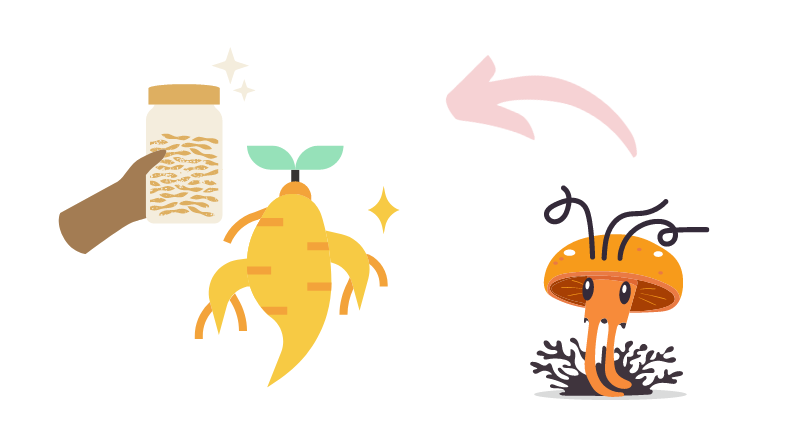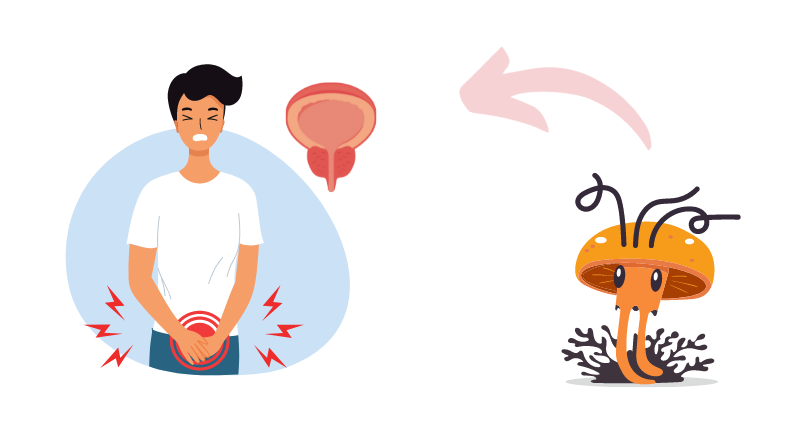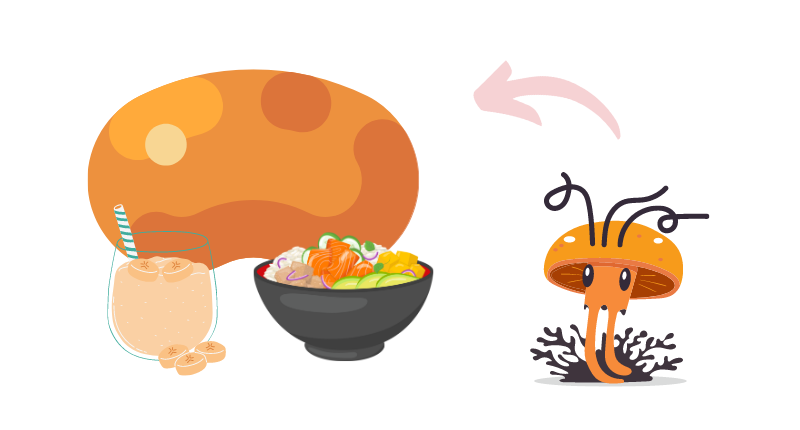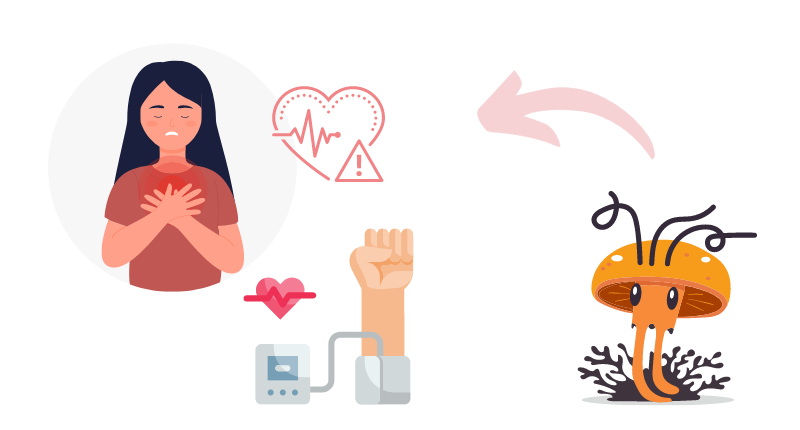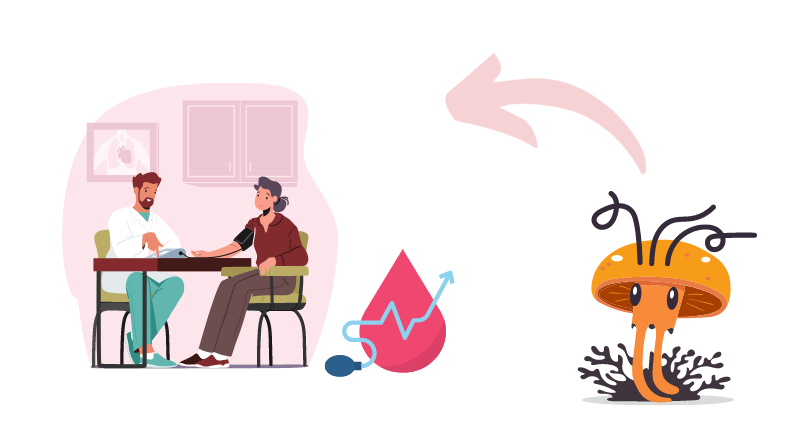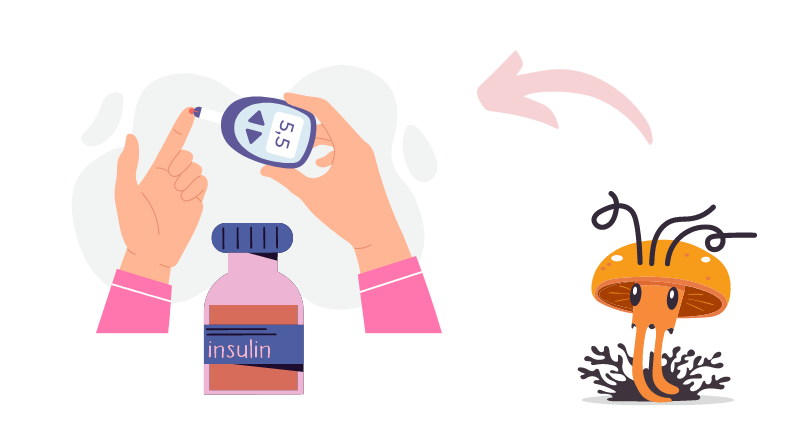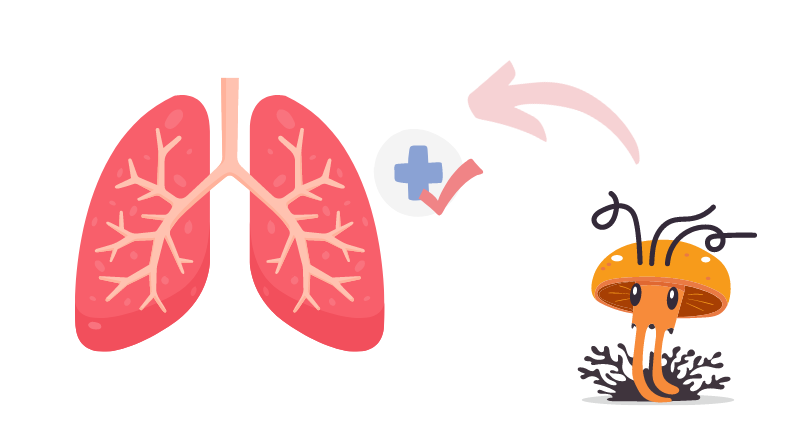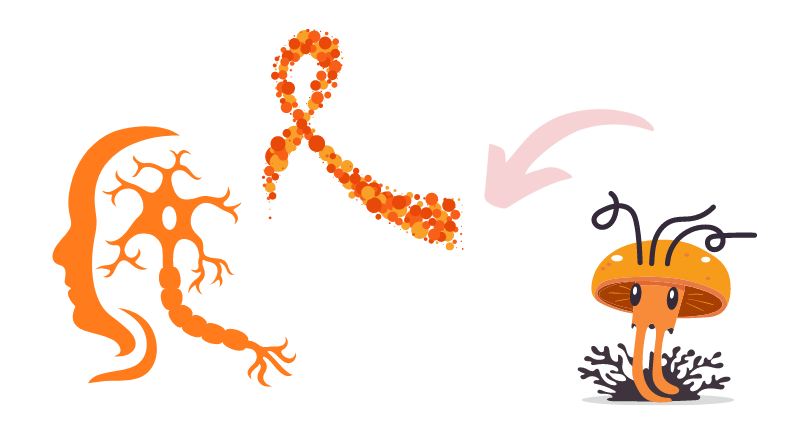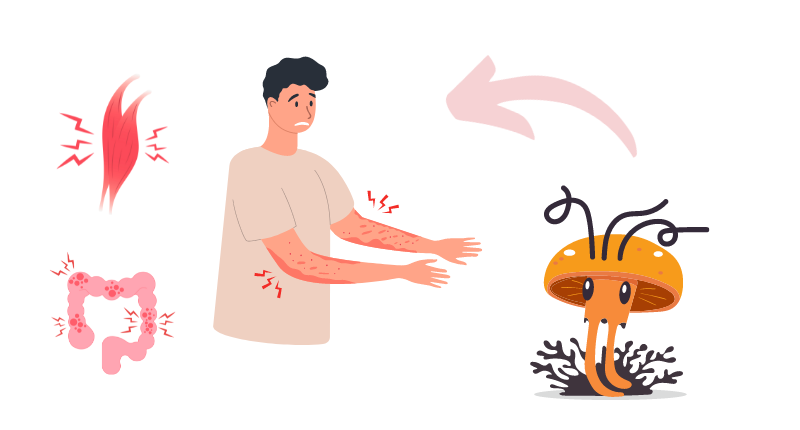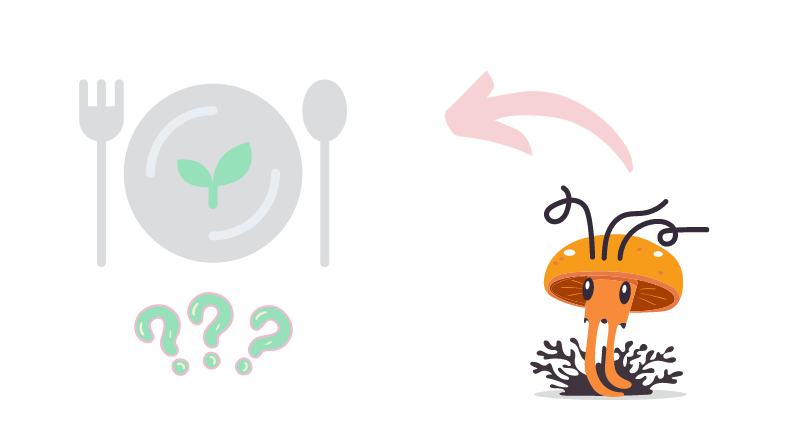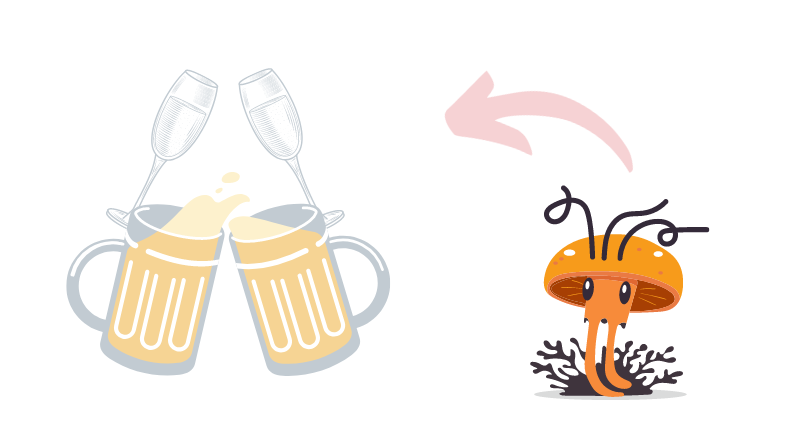In recent years, there has been a growing interest in the potential health benefits of CORDYCEPS and FERMENTED GINSENG. These two natural substances have been used in traditional medicine for centuries, and now modern science is beginning to uncover the reasons behind their effectiveness. In this article, we’ll take a closer look at cordyceps and fermented ginseng, explore their benefits, and discuss how to use them in your daily life.
WHAT ARE CORDYCEPS?
Cordyceps is a genus of fungi that has over 400 species, most notably Cordyceps sinensis and Cordyceps militaris. These fungi are parasitic and grow on the larvae of insects, eventually replacing the host tissue with their own fungal mycelium[^1^]. Cordyceps have been used in traditional Chinese medicine for centuries, often referred to as “winter worm, summer grass” due to their unique lifecycle.
The primary bioactive components of cordyceps are:
- Cordycepin: A unique nucleoside analogue with various biological effects[^2^].
- Polysaccharides: Complex carbohydrates that contribute to the immune-modulating effects of cordyceps[^3^].
- Sterols: Compounds that have been linked to anti-inflammatory and anti-tumor effects[^4^].
WHAT IS FERMENTED GINSENG?
Ginseng is a perennial plant belonging to the genus Panax, with Panax ginseng (Asian ginseng) and Panax quinquefolius (American ginseng) being the most commonly used species for medicinal purposes[^5^]. Fermented ginseng refers to ginseng that has undergone a fermentation process, which enhances the bioavailability and effectiveness of its active compounds[^6^].
The main bioactive components of fermented ginseng are:
- Ginsenosides: A class of steroid-like compounds with various pharmacological effects, including anti-inflammatory, antioxidant, and neuroprotective properties[^7^].
- Polysaccharides: These contribute to the immune-modulating effects of ginseng[^8^].
BENEFITS OF CORDYCEPS AND FERMENTED GINSENG
- IMMUNE SUPPORT
Cordyceps and fermented ginseng both contain polysaccharides, which have been shown to modulate immune function and enhance the body’s natural defense mechanisms[^3^][^8^]. Research has indicated that cordyceps can increase the activity of natural killer cells and macrophages, both of which play essential roles in combating infections and maintaining overall immune health[^9^].
- ENERGY AND ENDURANCE
Cordyceps has long been used in traditional medicine to improve energy levels and physical endurance. Studies have shown that cordyceps can increase adenosine triphosphate (ATP) production, which is the primary energy source for cellular processes[^10^]. Fermented ginseng, on the other hand, has been shown to reduce fatigue and improve mental and physical performance by modulating the hypothalamic-pituitary-adrenal (HPA) axis[^11^].
- ANTIOXIDANT AND ANTI-INFLAMMATORY PROPERTIES
Both cordyceps and fermented ginseng are rich in antioxidant compounds, which can protect cells from oxidative stress and help combat inflammation. Ginsenosides, in particular, have been shown to exert strong anti-inflammatory effects by inhibiting the production of pro-inflammatory cytokines[^12^]. Similarly, cordycepin and other bioactive compounds in cordyceps have been shown to exhibit anti-inflammatory effects in various in vitro and in vivo studies[^13^].
- CARDIOVASCULAR HEALTH
Cordyceps and fermented ginseng may also have potential benefits for cardiovascular health. Studies have shown that cordyceps can help improve blood circulation, lower blood pressure, and reduce cholesterol levels[^14^]. Fermented ginseng has been shown to have similar effects on blood pressure and cholesterol, with some studies indicating a reduced risk of developing cardiovascular diseases[^15^].
- COGNITIVE FUNCTION
Both cordyceps and fermented ginseng have been linked to improved cognitive function. Cordyceps have demonstrated potential in enhancing learning and memory, while also exhibiting neuroprotective effects[^16^]. Fermented ginseng has been shown to improve cognitive function by modulating brain neurotransmitters and reducing oxidative stress in the brain[^17^].
SIDE EFFECTS AND CONTRAINDICATIONS
Cordyceps and fermented ginseng are generally considered safe when used as directed. However, some potential side effects may occur, such as:
- Gastrointestinal issues (e.g., nausea, diarrhea, or stomach cramps)
- Insomnia or restlessness
- Allergic reactions (rare)
If you are pregnant, breastfeeding, or have an existing medical condition, consult your healthcare provider before using cordyceps or fermented ginseng. Additionally, individuals taking blood thinners or medications for blood pressure, diabetes, or immune system disorders should exercise caution and consult with their healthcare provider before using these supplements.
HOW TO USE CORDYCEPS AND FERMENTED GINSENG
Cordyceps and fermented ginseng are available in various forms, including capsules, tablets, powders, and liquid extracts. The recommended dosage will vary depending on the specific product and individual needs, so it’s essential to follow the manufacturer’s guidelines or consult with a healthcare professional.
In general, the following dosages are recommended for adults:
- Cordyceps: 1,000 to 3,000 mg per day, taken in divided doses[^18^].
- Fermented ginseng: 200 to 400 mg per day, taken in divided doses[^19^].
It’s important to note that the optimal dosage may vary based on individual factors such as age, weight, and health status. To achieve the best results, it’s recommended to use high-quality products from reputable manufacturers.
CONCLUSION
Cordyceps and fermented ginseng are two powerful natural substances that have been used in traditional medicine for centuries. Modern research has begun to reveal the potential health benefits of these natural remedies, which include immune support, increased energy and endurance, antioxidant and anti-inflammatory properties, cardiovascular health, and improved cognitive function.
Although generally considered safe when used as directed, it’s essential to consult with a healthcare professional before using cordyceps or fermented ginseng, especially if you have an existing medical condition or are taking medications. By incorporating these powerful supplements into your daily routine, you may be able to improve your overall health and well-being.
REFERENCES
- Sung, G.-H., Hywel-Jones, N. L., Sung, J.-M., Luangsa-Ard, J. J., Shrestha, B., & Spatafora, J. W. (2007). Phylogenetic classification of Cordyceps and the clavicipitaceous fungi. Studies in Mycology, 57, 5–59. https://doi.org/10.3114/sim.2007.57.01
- Tuli, H. S., Sharma, A. K., Sandhu, S. S., & Kashyap, D. (2013). Cordycepin: a bioactive metabolite with therapeutic potential. Life Sciences, 93(23), 863–869. https://doi.org/10.1016/j.lfs.2013.09.030
- Zhang, G., Huang, Y., Bian, Y., Wong, J. H., Ng, T. B., & Wang, H. (2016). Hypoglycemic activity of the fungi Cordyceps militaris, Cordyceps sinensis, Tricholoma mongolicum, and Omphalia lapidescens in streptozotocin-induced diabetic rats. Applied Microbiology and Biotechnology, 100(23), 10081–10094. https://doi.org/10.1007/s00253-016-7846-7
- Zhou, X., Gong, Z., Su, Y., Lin, J., & Tang, K. (2009). Cordyceps fungi: natural products, pharmacological functions and developmental products. Journal of Pharmacy and Pharmacology, 61(3), 279–291. https://doi.org/10.1211/jpp/61.03.0002
- Attele, A. S., Wu, J. A., & Yuan, C.-S. (1999). Ginseng pharmacology: multiple constituents and multiple actions. Biochemical Pharmacology, 58(11), 1685–1693. https://doi.org/10.1016/s0006-2952(99)00212-9
- Park, E.-K., Choo, M.-K., Han, M. J., & Kim, D.-H. (2003). Ginsenoside Rh1 possesses antiallergic and anti-inflammatory activities. International Archives of Allergy and Immunology, 130(2), 97–104. https://doi.org/10.1159/000068953
- Kim, H. J., Kim, P., & Shin, C. Y. (2013). A comprehensive review of the therapeutic and pharmacological effects of ginseng and ginsenosides in central nervous system. Journal of Ginseng Research, 37(1), 8–29. https://doi.org/10.5142/jgr.2013.37.8
- Lee, Y.-J., Jin, Y.-R., Lim, W.-C., Park, W.-K., Cho, J.-Y., Jang, S., & Lee, S.-K. (2003). Ginsenoside-Rb1 acts as a weak phytoestrogen in MCF-7 human breast cancer cells. Archives of Pharmacal Research, 26(1), 58–63. https://doi.org/10.1007/bf02976694
- Zhu, J.-S., Halpern, G. M., & Jones, K. (1998). The scientific rediscovery of an ancient Chinese herbal medicine.
- Song, J., Wang, Y., Teng, M., Cai, G., Xu, H., Guo, H., Liu, Y., Wang, D., & Teng, L. (2015). Studies on the antifatigue activities of Cordyceps militaris fruit body extract in mouse model. Evidence-Based Complementary and Alternative Medicine, 2015, 1-15. https://doi.org/10.1155/2015/174616
- Kim, H. G., Cho, J. H., Yoo, S. R., Lee, J. S., Han, J. M., Lee, N. H., Ahn, Y. C., Son, C. G. (2013). Antifatigue effects of Panax ginseng C.A. Meyer: A randomised, double-blind, placebo-controlled trial. PLoS ONE, 8(4), e61271. https://doi.org/10.1371/journal.pone.0061271
- Lee, Y. M., Yoon, H., Park, H. M., Song, B. C., & Yeum, K. J. (2017). Implications of red Panax ginseng in oxidative stress associated chronic diseases. Journal of Ginseng Research, 41(2), 113–119. https://doi.org/10.1016/j.jgr.2016.08.003
- Li, X., Gao, T., Wang, J., & Zhao, J. (2016). Cordycepin: a bioactive metabolite of Cordyceps militaris and its anti-inflammatory and analgesic effects. Journal of Analytical Science, 32(2), 191–196.
- Balon, T. W., Jasman, A. P., & Zhu, J.-S. (2000). A fermentation product of Cordyceps sinensis increases whole-body insulin sensitivity in rats. The Journal of Alternative and Complementary Medicine, 6(3), 289–293. https://doi.org/10.1089/acm.2000.6.289

